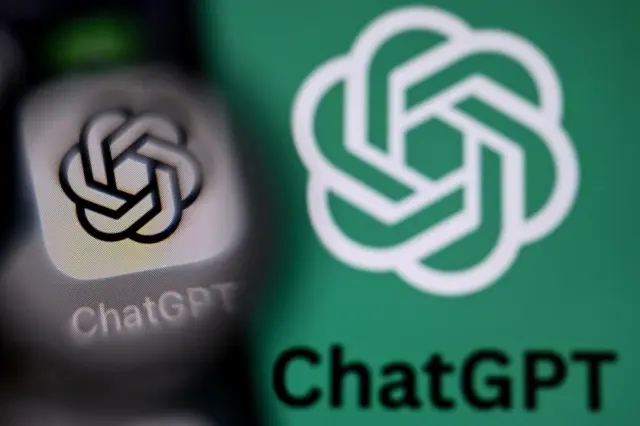-
Brendan Banfield Denies Plot in Double Murder Trial, Calling Accusations ‘Crazy’ - 13 mins ago
-
Disneyland Ride Breaks Down—How Passengers ‘Risk Getting Banned’ Shocks - 16 mins ago
-
Ray Kappe’s Modernist masterpiece asks $11.5 million in Pacific Palisades - 40 mins ago
-
California Jury Convicts Ex-Google Engineer of Stealing AI Secrets - 57 mins ago
-
L.A. County pauses some payouts amid sex abuse settlement investigations - about 1 hour ago
-
The Polls Are Clear. Americans Don’t Want This. - 2 hours ago
-
California Democrats help lead fight vs. Trump immigration crackdown - 2 hours ago
-
Patrick Schiltz, an Ethicist, Is the Minnesota Judge Blasting ICE - 2 hours ago
-
Trump rails against low-income housing in Pacific Palisades. But officials say no projects are planned - 3 hours ago
-
‘Melania,’ the Documentary, Premieres in Washington - 3 hours ago
Older Gen Zers Are Letting AI Pick Their Health Insurance Plan
Older members of Gen Z are adopting a surprising strategy for choosing health insurance plans: asking artificial intelligence to recommend the best option.
A new report from Justworks found that roughly two in three “zillennials”—the microgeneration comprising the eldest Gen Zers and the very youngest millennials—would rather trust AI to help them choose a health plan than try to figure it out on their own.
Why It Matters
AI has infiltrated nearly all realms of life, from the workforce to education and even dating.
As many Gen Zers find themselves picking their own health insurance for the first time, navigating the different options can feel overwhelming. After relying on AI for help in their work and studies, many have turned to AI again for assistance.
What To Know
Based on a survey conducted in partnership with The Harris Poll of over 4,000 U.S. adults aged 18 and older, 62 percent of zillennials have used AI tools to help choose the best health plan.
This could be because zillennials are largely uncomfortable picking health insurance options. About one in five zillennials (21 percent) are not confident in their ability to choose a suitable plan for themselves, including nearly 3 in 10 Gen Z adults (29 percent, compared to 17 percent of millennials).
Over half of Gen Z adults (55 percent) admit they don’t know much about choosing an insurance plan because they’ve never had to select a plan themselves. And more than 2 in 5 zillennials (44 percent) acknowledged that they don’t put a lot of thought into choosing their insurance plan.
“Insurance for most people is complex and confusing. Prior generations relied heavily on insurance agents and brokers for information and advice,” Chris Fong, CEO of Smile Insurance and a Medicare specialist, told Newsweek. “The zillenials are no different in feeling overwhelmed and confused by insurance, but instead they are relying on AI for their information, which is a great way to break down the benefits of the insurance plans.”

What People Are Saying
Alex Beene, a financial literacy instructor for the University of Tennessee at Martin, told Newsweek: “It’s easy to see why many in Gen Z would opt to use AI to help them pick the health insurance plan that would be most appropriate for their needs rather than relying on their own research. Health literacy, even among educated Americans, is notoriously low. It isn’t a comprehension issue as much as it is an understanding of all the policies and procedures that go into what gets covered, what doesn’t, and how much it can ultimately cost. AI, on the other hand, can take multiple plans and explain them in a way that resonates with the insured and better lays out the pros and cons of each plan.”
Chris Fong, CEO of Smile Insurance and a Medicare specialist, told Newsweek: “Generally, a person will have two main parts to their decision making process: objective and subjective. The objective is simply looking at the benefits of various plans and determining which one is going to cover their needs. AI is a good resource to research and gather this information. But, the current form of AI is challenged by the subjective part of the process. For example: a person may not want to be with a company because that company denied a heart surgery for their grandma that could have saved their grandma’s life.”
Kevin Thompson, the CEO of 9i Capital Group and the host of the 9innings podcast, told Newsweek: “This is equivalent to the ‘easy button’ we used to see on those Staples commercials. Health insurance is unnecessarily convoluted and needs to be made simpler for not only the Gen Z population, but for all individuals.”
What Happens Next
As more Americans rely on AI to help make their health insurance choices, they may find that their coverage does not adequately address their specific needs and instead relies on overly generalized logic.
“The real issue here is that AI may lead them to plans that are less than adequate because the individual imputing the information does not truly know what to ask,” Thompson said. “This will not end well, and many may find themselves drastically paying more for health insurance out of pocket or just paying unnecessarily higher premiums.”
Source link










